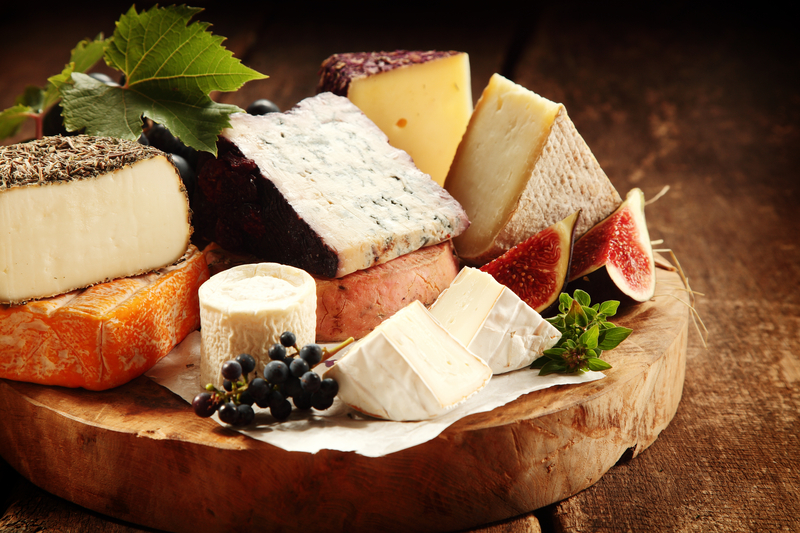For several years now we have been told that high-cholesterol foods increase the risk of heart disease. This idea originated and became a dietary warning in the United States about 1961 when the American Heart Association developed it as part of their healthy heart guidelines. Within a short period of time, the federal government adopted the guidelines and began campaigning with warnings to stop eating foods that contained high levels of cholesterol.
However, recent studies have shown that this is not necessarily true.
In fact, most of the cholesterol in our blood is produced by the liver. Our bodies need cholesterol to perform important functions such as creating vitamin D from sun exposure, making hormones, supporting healthy brain development, brain function, and building healthy cells throughout the body. Cholesterol is so important that what we don’t get from dietary sources, our liver will make. In the case of high blood levels of cholesterol, we should be looking at why the body is making excess cholesterol.
Our bodies will temporarily make higher levels of cholesterol to fight infections by attaching LDL cholesterol to viruses and bacteria helping the immune system to locate and fight the invaders and to make bile salts which aid in removing toxins.
But the number one reason that many people in the U.S. have increased levels of cholesterol is that they consume a Standard American Diet that consists of highly processed ingredients such as toxic hydrogenated fats, partially hydrogenated fats and trans fats. Packaged and processed foods are high in artificial additives and depleted of important nutrients necessary to keep cholesterol levels low, prevent plaque from building up and support the biological processes that our bodies perform every day.
Studies show that dietary cholesterol has a minor effect on blood cholesterol levels and that “Dietary cholesterol was not statistically significantly associated with any coronary artery disease, ischemic or hemorrhagic stroke,” according to this Pubmed article.
Many cholesterol containing foods are actually among the healthiest and most nutrient dense foods to consume.
Here are several high-cholesterol foods that are incredibly healthy.
7 Super Healthy
High Cholesterol Foods
Cheese
One ounce of cheese depending on the type, provides about 28 mg of cholesterol and is loaded with other nutrients including calcium, fat soluble vitamins A and D, vitamin B12, zinc, phosphorous and riboflavin or vitamin B2.
Cheese is satiating, helping you feel satisfied and full when added to your meal. It is a tasty addition that is healthy, provided you tolerate dairy products well. Cheese contains nutrients that support healthy bones, improve heart health and may promote loss of body fat.
Choose aged cheeses when possible and avoid processed cheeses.
Eggs
Eggs in my opinion are one of Mother Nature’s most perfect foods. Eggs are high in cholesterol providing about 187 mg in one egg and 6 grams of protein. The yolk contains enzymes that help break down and utilize the protein that is found in egg whites and are best eaten together to maximize nutrient utilization.
Eggs are one of the few dietary sources of choline, another being liver. Choline is essential for brain health, especially in developing fetus’ and children.
Eggs contain several B vitamins and 56% of the recommended daily allowance of selenium which supports estrogen and testosterone production.
Eggs are loaded with nutrients, most of which are found in the yolks which also happens to be the part of the egg that contains cholesterol. Don’t be afraid to eat the yolk.
Liver
Liver is not a popularly consumed food in the U.S. but most traditional diets include liver and other organ meats whenever possible. Liver is an extremely nutrient-dense food yet it provides about 389 mg of cholesterol for a 3.5 ounce serving.
A serving of liver contains 600% of the recommended daily value of vitamin A and over 1,000% of the daily value for vitamin B12. Liver is a good source of heme iron which is the most easily absorbed form of iron. Non-heme iron that can be found in plant sources such as beans and leafy green vegetables is less bioavailable to us, and harder to absorb.
Along with whole eggs, liver is one of the few foods that contain choline, an essential nutrient that supports our brain, heart, liver and muscles.
Shellfish
Shellfish, including shrimp, crab, lobster, mussels, oysters, clams and scallops are all incredible sources of protein. These foods contain iodine which supports thyroid health, selenium for hormone production, and nutrients that reduce inflammation.
Research has shown that many people, particularly women and children, are deficient in iodine which is crucial for proper brain and thyroid function.
A 3.5-ounce portion of shrimp contains 211 mg of cholesterol and yet only 2 grams of fat.
Cod Liver Oil
If you have followed me on Instagram or Facebook, or read many of my blog posts you may already know that I am a HUGE proponent of cod liver oil. Cod liver oil delivers amazing health benefits in as little as one tablespoon per day.
Just one tablespoon of cod liver oil is an excellent source of vitamins A and D. It is rich in omega-3 fatty acids which reduces internal inflammation a leading cause of cardiovascular disease.
Researchers have suggested that vitamin D and omega-3 fats may work together to protect against cancer.
Salmon
Salmon has a reputation of being one of the healthiest fish for human consumption and rightly so. Wild caught salmon contains 25 grams of protein per 4 ounce serving, is high in omega-3 fat, has 85% of the recommended daily allowance of selenium, and provides 127% of vitamin B12. It is also, packed full of other B vitamins.
But, did you know that 4 ounces of salmon has roughly the same amount of cholesterol as a New York steak? Both salmon and a juicy New York contains 63 mg for a 4-ounce serving. And ground beef contains between 70 and 90 mg for a 4-ounce serving, depending on the percentage of fat.
The nutrients in salmon support the production red blood cells, reduces inflammation, and regulates the health of our central nervous system.
Butter from Grass-fed Cows
While conventional butter and butter from grass-fed cows contain about the same amount of cholesterol, about 31 mg per tablespoon, butter from grass-fed cows has the added advantage of higher levels of vitamin A, D and omega-3 fats.
Butter is rich and highly satiating. The omega-3 fat found in butter is a healthy addition to our diet and helps balance omega-6 fats found in olive oil and avocado oil.
Summary
Dietary cholesterol has only a minimal effect on our blood cholesterol levels and research shows that there is little evidence indicating that dietary cholesterol contributes to cardiovascular disease.
In fact, real foods containing the highest levels of cholesterol are often extremely healthy and very nutritious.




